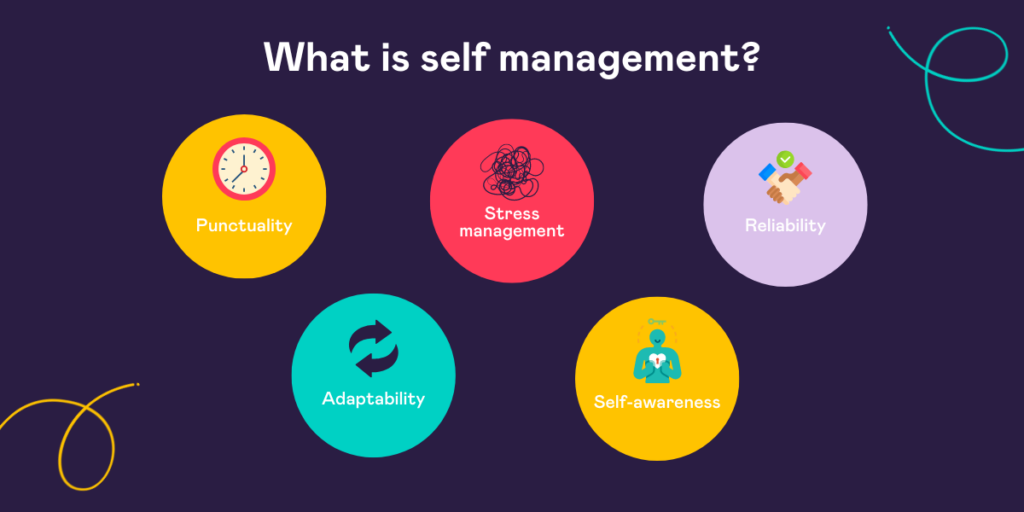Having good self-management skills can help you succeed at work, especially across remote and hybrid teams. The ability to work autonomously is an undervalued skill, not only for individuals but for the whole company.
Workers with great self-management skills are more productive, have a greater sense of purpose and are more likely to achieve personal goals. Even though they work self-sufficiently, they are more likely to engage in the workplace.
Workers Thrive in Positive Environments
Our mission at Mo is to help companies transform their work cultures into spaces for growth and respect. We achieve this by leveraging recognition to change daily habits.
One of the biggest blockers in cultural transformation is micromanagement. Not only does micromanagement prevent employees from doing their work, it also prevents important coaching opportunities between managers and their teams.
The truth is, we deserve better managers. No matter how effective employees are at self-management, their productivity will fall unless their managers empower them to make smart decisions.
Our Software Empowers Managers
Mo supports busy managers with our employee communication and rewards platform, which makes it easy to connect with your team without stifling them.
Anyone can improve their self-management skills – but team leaders must encourage those skills, especially in a hybrid work environment. That’s why we’ve compiled a guide packed with self-management tips to help employees and managers succeed.

What is Self-Management at Work?
Self-management is our ability to regulate emotions and control actions and behaviours. Strong self-management skills prevent us from missing deadlines and help us navigate workplace conflicts. Simply put, self-management is about preparing for the future, not just acting in the present.
Goal setting and strategic planning are the pillars of successful self-management. In an era of remote and hybrid working, managing your own time has become even more essential. Workers must maintain focus despite regular domestic distractions – and often requires constant stress management and emotional regulation.
As Forbes reports, low self-management often means that emotions run the show, which can lead to burnout or motivational dips. When managers encourage their teams to take ownership of their workload, they empower employees to be the masters of their fate.
Why is Self-Management Important at Work?
Employees with strong problem-solving skills put less pressure on managers and leaders. Additionally, individuals with good self-management skills are also reliable and can prioritise tasks without constantly asking their superiors for guidance.
Most managers are overwhelmed by their workload. Self-sufficient employees reduce this burden and give the department an advantage. After all, success is not just about individual contributions. Teamwork is essential.
In a productive team in an environment where most people are organised, disciplined, and strategic. When the opposite is true, employees become demotivated, and work tends to be of lower quality.
Leaders Must Model Self-Management
Self-management is also a crucial skill for leaders. Our CEO Luke Fisher has long been a fan of the methods outlined by The Productivity Ninja. He recommends the techniques proposed by Graham Allcott as the perfect way to work smarter, rather than harder.
There are now many AI tools designed to help you organise your workflow. These can be great for streamlining your priorities or taking small tasks off your hands. However, it’s important to work your self-management muscles. After all, the skills you develop yourself will be more easily transplanted and used in multiple circumstances and instances.

Examples of Self-Management Skills
What does successful self-management look like in a real workplace example? There is no point in advising employees to develop self-management skills if they don’t have relatable examples.
1. Punctuality
Being on time is essential to being able to get a job done. Everyone who has been to school knows that being on time is essential, but some people find it much harder than others.
As a team leader, there are two approaches you can take:
- The Punitive Approach – negative reinforcement for being late, such as docking pay
- The Positive Approach – provide incentives to those who do arrive early or on time
2. Stress Regulation
Being self-aware is the first step in stress regulation. It means workers can take action before their stress levels become unbearable.
Team leaders can coach their teams to recognise stress and provide strategies for dealing with it appropriately. Encourage your team to speak up when their workload is too much, and help them prioritise it with tools such as Trello or Asana, but sometimes a simple to-do list is efficient!
Introduce stress education to help your employees better understand the difference between good and bad stress, and provide tips on coping.
Everyone can shift the bad to good by seeing the benefits of a potential situation and leveraging strengths to deal with it. Showing your staff you care by supporting their wellbeing will help to improve morale and increase productivity.
3. Reliability
Every team leader loves to have reliable colleagues. By fostering a positive working environment that builds trust and respect, you’re more likely to find reliable workers. Here are a few methods you can use to determine how reliable a candidate is at the recruiting stage:
Use cues from the interview:
Did they arrive early? Early arrival shows excitement and eagerness that will likely translate into a hard-working and dedicated employee.
Did they research the company? This is a strong indication of a highly motivated employee, which will strongly impact their reliability.
Did they ask questions? That type of enthusiasm and curiosity will bode well for the future.
Ask specific questions and pay attention to how they answer:
Inquire about why they want to work for your company. If the answer is to pay bills and fill out their resume, then they might not be the ones to get the job done. Enthusiasm and a positive attitude are what you’re looking for here.
You can also ask about their long-term goals. If they see your company as a placeholder while looking for something better, then you may not be able to trust them to churn out high-quality work.
Inquire about their needs and the ideal work environment for them and ensure it matches what you offer. Also, ask about their previous work experience to get a better understanding of how they dealt with high-pressure situations or conflicts between co-workers.
Ask for references
You might already do this in the application process, so why not use them? Contact the previous employers to help them know for sure that this person is reliable.
4. Adaptability
The ability to deal with change and discomfort can be an excellent characteristic, especially in a business where changes are frequent. If you want help finding the most adaptable candidates at the interview stage, here are a few questions you can ask:
- “Are you someone who can adapt to different work environments?” If the role requires travel, then the ability to adapt is essential.
- “Tell me about a time you had to learn a new task at work. What did you do to speed up the learning process?” This question gives more insight into their learning capabilities and whether they can catch onto things quickly.
- “What are some challenges you experience when starting a new job?” Ask this question to learn more about the candidate’s mindset when they start something new. Can they welcome new challenges and find ways to overcome them quickly?
- “How do you stay motivated when taking on a new project?” This usually requires a lot of effort and motivation, so this will help get an idea of what strategies the candidate uses to be more productive.
- “Tell me about a time someone asked you to do something outside of your job description.” This question can help determine whether the candidate will be helpful during times of change. Every so often, you may need your employees to do something outside of their official job description – could you rely on the candidate to do this?
5. Self-Awareness
Being self-aware is a separate skill from self-management. Someone who is self-aware will know their limits and when to call for help. Being good at self-awareness doesn’t mean doing things alone. Combining self-management with self-awareness is much better for business – it promotes working together.
Arguably the most important thing workers can do is share with colleagues and team leaders how they work best. This way, managers can help their team succeed.
Though many of these self-regulation skills are characteristics that can be developed and worked on in everyone, it’s worth being mindful of neurodiversity. Estimates suggest that 1 in 7 people in the United Kingdom are neurodivergent, so it’s likely that all workplaces have some neurodivergence on their teams.
In the past, employers might have mistaken this for laziness so management needs to know how to support these individuals. Being aware of neurodiversity is essential for an inclusive workplace.
Transform your culture with Mo

- Improve employee engagement scores
- Reduce employee churn
- Build a collaborative culture
How Employees Can Practice Self-Management?
Now that we’ve covered why self-management is important at work, it’s time to take action. Practising self-management is essential for all – no matter who you are in the organisation. Knowing how to practise self-management means you can also share your knowledge with others in your team. After all, sharing is caring. Here are some tips to improve your self-management:
1. Prioritise Self-Care
Many people now baulk at the term self-care. It’s often seen as inherently millennial – like avocado toast, selfies and FOMO.
But consider this: around half of the absences from work are related to stress, anxiety, and depression. In its simplest form, self-care is a considered effort to take better care of yourself. By looking after your physical health and mental health, you can reduce workplace stress, anxiety and depression.
A long bubble bath is certainly not an overnight fix, but almost everyone will benefit from drinking more water, eating better, and having a good night’s sleep. Ensure that you get at least 8 hours of sleep every night so that you can come to work feeling rested.
2. Focus on Strengths
As we mentioned above, people have different strengths and limitations, and as long as we’re aware of what they are, we can help ourselves and others practise effective self-management.
3. Develop Emotional Intelligence
Strengthening personal management skills will directly impact business success, but you must prioritise your well-being during this time. Consider how this change influences moods and emotions. When focusing on emotional intelligence, you can also collect and analyse important thoughts and discoveries made about yourself.
4. Take Breaks
If you want employees to work on their time management skills, encourage breaks from time to time. Typically, a self-improvement journey isn’t going to happen overnight and is more of a long-term goal.
When your employees are taking time to reflect and look back at how far they’ve come, it can boost their confidence and maintain motivation.
5. Set Personal and Professional Goals
When you know what you’ve got to do and when you’ve got to do it, it is so much easier to accomplish. Create small, actionable goals. This is a simple yet effective way of avoiding overwhelm and stress.
Encourage your employees to set short-term and long-term goals. By setting goals, employees will be challenging themselves with a new project or potentially working their way toward a promotion. Provide them with ways to measure their progress by scheduling check-ins to help them recognise their accomplishments.
6. Celebrate Successes
Whether you’re incentivising yourself or others, it’s important to recognise success. Often, it’s easy to forget to reward ourselves. Rewarding yourself makes sense when you succeed in self-management and achieve your goals.
Our employee recognition software makes it easy for busy managers to engage, reward and recognise their employees – improving productivity and reducing attrition.
Self-Management at Work: Key Takeaways
- Productivity and Engagement: Strong self-management skills lead to increased productivity, a greater sense of purpose, and improved engagement among employees. Workers who can manage their time effectively and regulate their emotions are more likely to achieve personal and professional goals, contributing positively to the workplace environment.
- Positive Work Culture: Self-management is essential for creating a positive work environment where employees thrive. Micromanagement can hinder productivity and prevent important coaching opportunities, emphasising the need for supportive management that empowers employees to make smart decisions and take ownership of their workload.
- Leadership Role: Self-management is not only important for individual employees but also for leaders. Leaders who model self-management skills set a positive example for their teams and foster a culture of accountability, productivity, and adaptability. Encouraging self-awareness and providing support for neurodiversity contribute to building an inclusive workplace.



